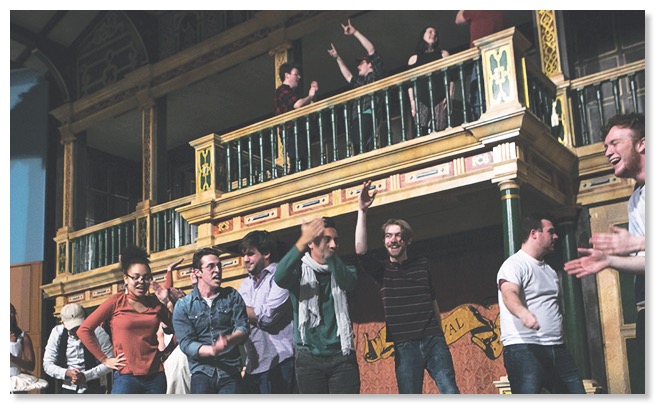Language
Rude!
September/14/2018 08:33
Against Expectations
May/16/2018 11:24

It's well known that in Shakespeare's era, young men played female roles (see here, here, and here). So the circle seems to be coming around on the issue of gender roles on stage with a new production by Michelle Terry (artistic director at The Globe) where gender will play no role in making casting decisions — Ms. Terry will herself play the role of Hamlet. It's an interesting discussion, made perhaps more fraught by today's our own era's uneasy discussions about gender roles and stereotyping.
Gambino and the Bard - A Complex Performance
May/10/2018 10:38

Film, TV star, singer, and entertainer Donald Glover, (stage name Childish Gambino) has put out a grim and troubling music video (This is America). What caught our attention was an article comparing the piece's multi layered messaging and overall complexity to Shakespeare, and the Bard's tendency to write on multiple levels about complex issues — graft, intolerance, cruelty amongst others. The article, from Heidi N. Moore writing for NBC news is well-written and thought provoking.
Beyond the references to Shakespeare, this video also reminds us of the different ways in which critics can make their points. Slate and The New Yorker choose writing (with embedded videos), while Art Insider chooses a deconstruction of the video with voice over and words and diagrams overlayed on the video. Both approaches work well, but Art Insider's approach seems to us slightly more effective overall. Judge for yourself!
AMND, in ASL
April/17/2018 15:36

Great news article out of Washington, on a production of A Midsummer Night's Dream, that will be co-produced in English and American Sign Language. Yet another barrier broken down.
Unsex Me Here
April/02/2018 18:26

David Crystal, noted linguist and father of the excellent Ben Crystal, lays out in great and fascinating detail the words and phrases that Shakespeare brought to life in Macbeth. That one man could produce (and have adopted into the vernacular) so many great and powerful words and phrases in just one play, is simply astonishing. For teachers helping students grapple with Shakespeare's language, this really is a wonderful article.
Take Note
March/29/2018 12:49
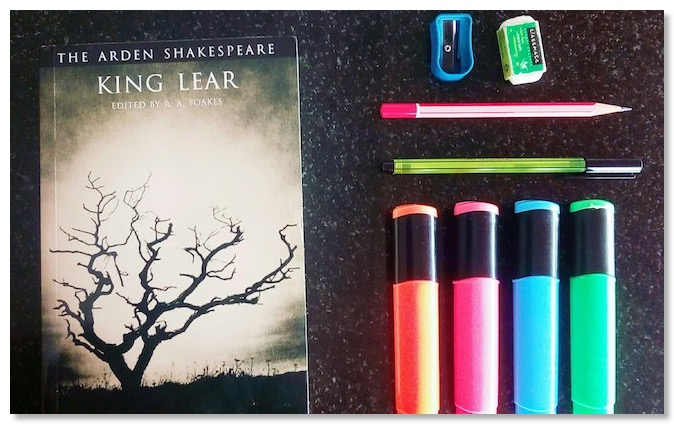
Shakespeare Magazine (now 13 issues old) works to bring all things Shakespeare to a broader audience. With varying degrees of success, they surface a number of issues surrounding Shakespeare's works. Another resource of possible interest to teachers, and here we highlight Amogha Sridhar's piece. We particularly like the image of a text, together with the annotation tools she uses to work on Shakespeare's texts - highlighters, pencil, eraser, and sharpener. All still necessary, even in an increasingly digital world.
Star Wars Shakespeare Parody Series to Continue
March/28/2018 15:05

Ian Doescher scored quite a hit several years ago by creating a Elizabethan parody of the Star Wars films (more or less every title tacking "etc" to the end of a word or two and giving it a Shakespearean language veneer). With six tomes under his belt, the next in the series is due out July 7, as announced by Star Wars website. Whatever its limitations in terms of introducing readers to Shakespeare's language, it does certainly convey the rhythm and affect of Shakespeare's work, and can surely only help for students who struggle to understand his language.
Speak the Speech as the Robot Recites it?
March/19/2018 17:13

Shakespeare resonates all around our contemporary world, but this article from WKERA in Dallas points to a use for Shakespeare in the future, in robots that work with the elderly. Astonishing work from the folks at the Emotional Robotics Lab at UT Arlington.
All Those in Favor, Say "Ides"
March/16/2018 13:59
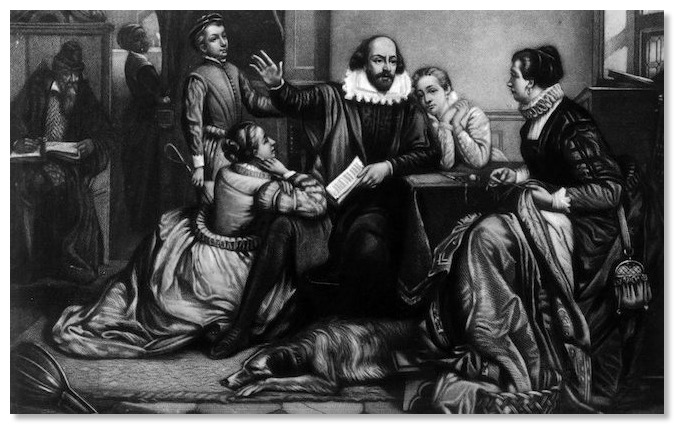
It's that day of the year again, the dreaded (for Roman dictators at least) Ides of March. Professor James Shapiro of Columbia University takes the opportunity to discuss Shakespeare's importance not just to America, but to New York City itself. And there are some great little stories in there.
Insulting
March/05/2018 12:02

In the classrooms we have visited over the last few years, we've noticed that Shakespearean insults, and software that generates "Shakespearean-style" insults seems to work well in capturing the imagination of younger students. We recently came across this amusing video of Siobhan Thompson deploying insults in a 21st century context. Cleverly done, and not too insulting…
Speak the Speech...
February/26/2018 08:09
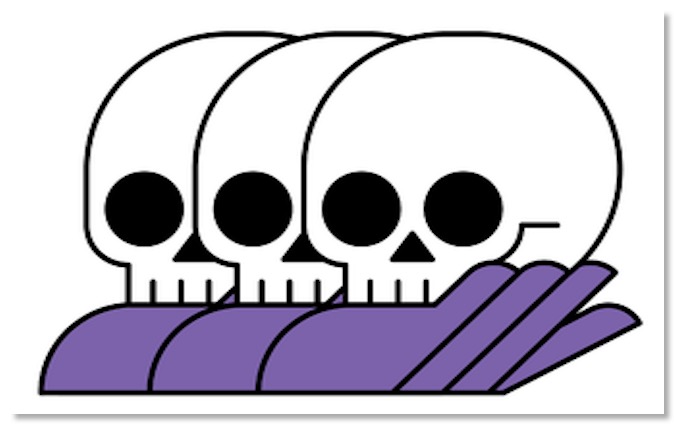 The Royal Shakespeare provides many valuable educational resources. Here, Jacqui O'Hanlon, Director of the RSC's Education outreach group, provides some tips on how to memorize Shakespearean verse. Useful.
The Royal Shakespeare provides many valuable educational resources. Here, Jacqui O'Hanlon, Director of the RSC's Education outreach group, provides some tips on how to memorize Shakespearean verse. Useful.Age (In)appropriate?
February/13/2018 09:47

Always beneath the surface with Shakespeare's plays: how do 21st Century teachers handy the sometimes bawdy and violent imagery and language in Shakespeare? In Western Australia, principal Ted Kosicki feels that certain texts — including Romeo and Juliet — need to be reviewed, and possibly removed from the curriculum. A tricky subject, and also proof again of the value Shakespeare provides, by exciting discussion and thought.
Writing While Under the Influence...
February/12/2018 12:32
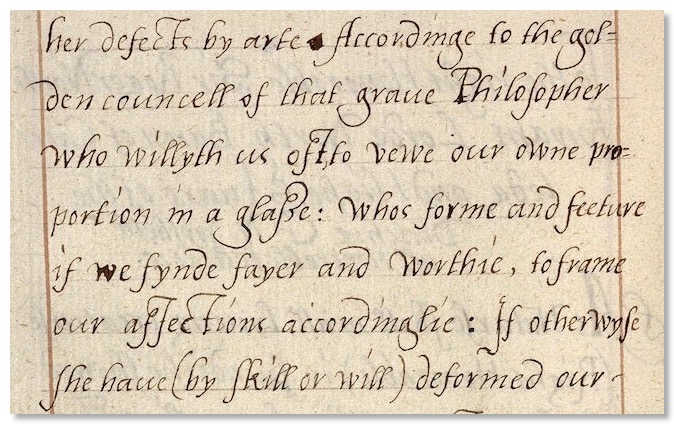
Shakespeare did not write in a vacuum, and scholars today confirm that he was heavily influenced by Holinshed's Chronicles, and Plutarch's Lives (properly titled Lives of the Noble Greeks and Romans.)
Now, an amateur and deeply capable scholar — Dennis McCarthy — has, in collaboration with Professor June Schlueter, ferreted out what is likely to prove a powerful third influence on Shakespeare, the writing of one of Queen Elizabeth I's ambassadors to Sweden, George North. An obscure diplomat until now (his Wikipedia entry starts onFebruary 8, 2018 — 4 days ago!) he had an elegant turn of phrase that clearly caught Shakespeare's attention and imagination. The book that sparked Shakespeare's — and now our — interest, was A Brief Discourse of Rebellion & Rebels. Read the New York Times article here.
Sounds About Right!
February/09/2018 08:36
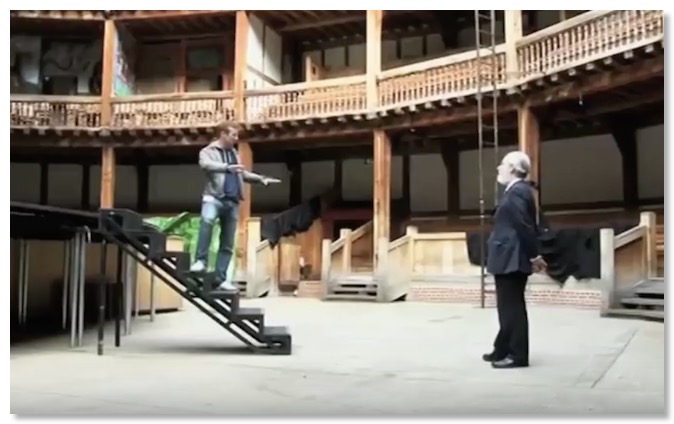
David and Ben Crystal provide a genuine service to Shakespeare lovers (and doubters too, really) by hypothesizing on what Shakespeare's language might have sounded like in its original pronunciation. In addition to being intrinsically interesting, it has an impact on performance, if actors and directors wish to provide an "original" production to their audience. Very worthwhile video clip.
May I Misquote You?
January/30/2018 17:22

Always fun to track down a misquoted quote. Here, the offending (and never-written-by-Shakespeare) quote is: People usually are the happiest at home Writer Mark Fisher goes on to cite a real quote (from Henry V) which highlights how the initial sense of an Shakespearean phrase can often be the exact opposite of its actual meaning: "Men are merriest when they are from home", where "from" means "away", rather than "at".
A Titan Passes
January/23/2018 15:30
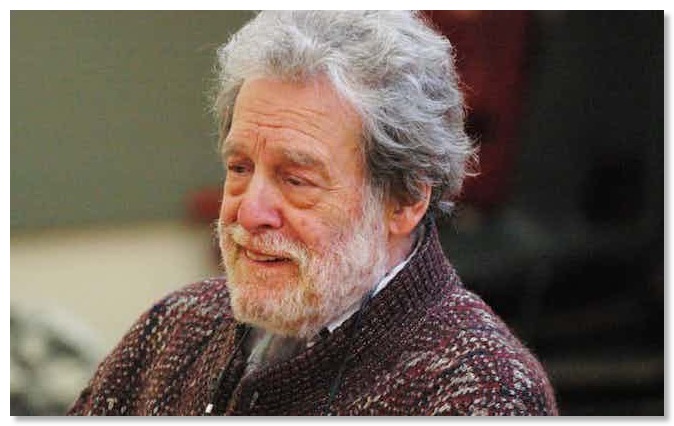
An absolute giant in the Shakespeare world has passed away. Read more about John Barton in his obituary, and his Wikipedia page. To see him at his avuncular and incisive best, watch some of his work on Playing Shakespeare.
Fundamentally Dishonest, or Fundamentally Cautious?
January/19/2018 09:12

The discussion about trigger warnings lapped on to Cambridge's shores late last year, with the news that English literature students at Cambridge received trigger warnings about sexual violence and assault in regards to Titus Andronicus and Comedy of Errors. Professor Mary Beard and Cambridge Shakespeare Festival Artistic Director David Crilly reacted strongly against the move.
Shakespeare: The Cure for Intellectual Lazyness?
May/01/2017 14:12
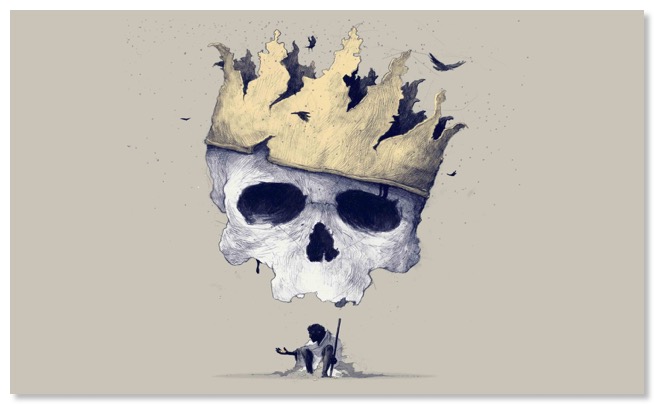
(Simón Prades for The Washington Post/For The Washington Post)
A good (if not slightly harsh) review of modern perspectives on Shakespeare. Are we too timid with our productions? Is "relevance" overblown"? More.
A Hofstra Hamlet that "Would Make Shakespeare Proud"
March/08/2017 11:28
It's All Just Vector Space Mathematics to Me (Or Maybe Not...)
December/01/2016 15:39
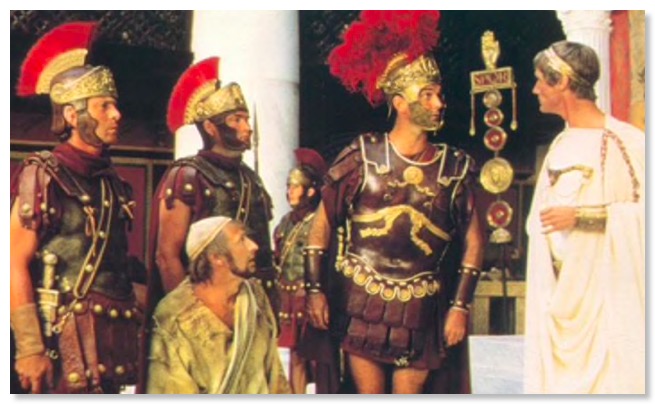
Fascinating (and a little over our head) article in MIT Technology Review about how computers may one day be able to detect sarcasm, and other subtle linguistic tricks. More.
Analogy Lovers, Start Your Engines!
November/20/2016 15:28

The Guardian proposes that Leonard Cohen is to Bob Dylan, as John Donne was to Shakespeare. Discuss...More.
Shakespeare in Mandarin
November/11/2016 15:23

Tremendous article in the Financial Times detailing the possibilities and pitfalls in translating Shakespeare's works into Mandarin. More.
Comparing Hamilton to Henry IV, part 1.
November/09/2016 15:19
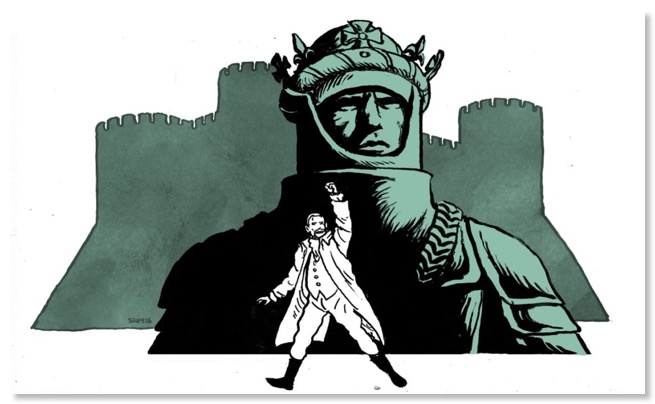
Isaac Butler, compares Lin-Manuel Miranda's Hamilton, with Shakespeare's Henry IV, part 1 -- (proper title: 1 Henry IV) in this complex but well reasoned piece for Slate. More.
What do the words "magazine", "coffee", and "alcohol" have in common?
November/07/2016 15:12

This delightful article by Madeline White in the Brisbane Times provides the answer: provenance. These three words are very much part of today's English lexicon, but all three originated from the Arabic language. The point? That historically, the English language has proved very adept at incorporating elements from other languages into the vernacular - with Shakespeare in the lead as an arch-shaper of that language, and emoji as the latest digital import into English. Ms. White makes the case better than we can! More.

